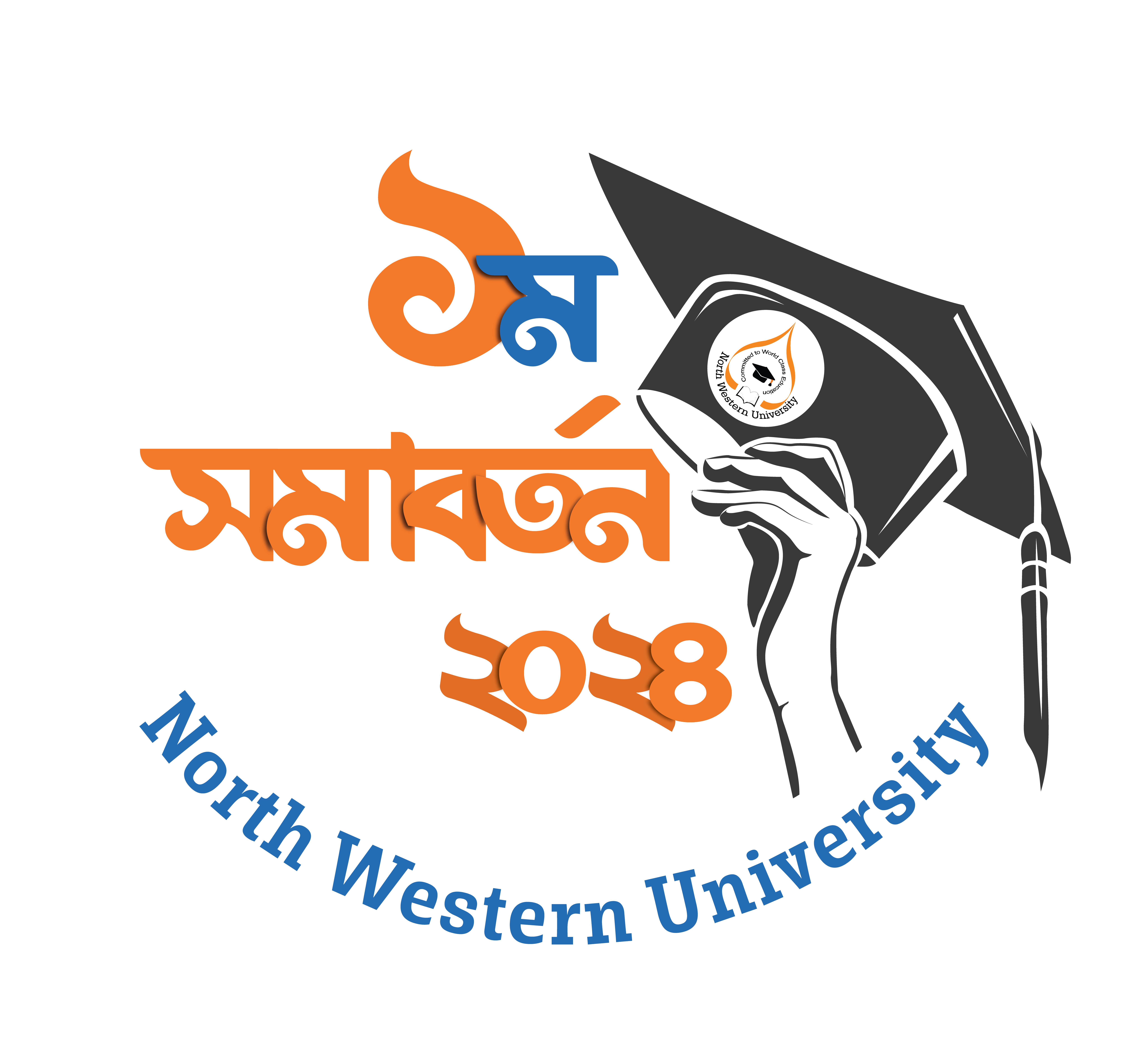|
Update Info:
|
|
About Us
North Western University, Khulna the first full-fledged private university in Khulna, Bangladesh was established on the 18th November, 2012. The University started Academic Activities from Spring Semester, 2013.
The Government of the People’s Republic of Bangladesh approved the establishment of North Western University under Private University Act. 2010.
The University started its activities with 4 Faculties, 12 Departments, 67 full time teachers, 61 part time teachers and 489 students. At present the University consists of 4 Faculties, 14 Departments. The number of students and teachers have risen to about 3400 and 140 respectively.
The first fresh admission classes had 489 students enrolled in 12 Departments: Business Administration 62 students, BA Hons in English 9 students, MA in English 5 students, LLB 10 students, MBA-1 Year 27 students, EMBA 31 students, MBA-2 Year 11 students, MDS 7 students, Computer Science & Engineering 92 students, Electrical & Electronic Engineering 150 students, Civil Engineering 84 students.
The main purpose of the University was to create new areas of knowledge and disseminate this knowledge to the society through its students. Since its inception the University has a distinct character of having distinguished scholars as faculties who have enriched the global pool of knowledge by making notable contributions in the fields of teaching and research.
The high standard of education and research for the University was set by its Vice-Chancellor, Prof. Dr. Khondoker Bazlul Hoque.
According to the provision of the Private University Act-2010, Talukder Abdul Khaleque is the current Chairman of the Board of Trustees, North Western University and North Western University Trust. The Board of Trustees (BOT), the apex body which provides the overall policy guidelines and approves annual budget of the University, is headed by its Chairman.
The Vice-Chancellor, as the chief executive and academic officer runs the university with the cooperation of the statutory bodies operating under the provision of the Private University Act. 2010. The Registrar maintains the university records including admissions, keeps liaison with Ministry of Education, University Grants Commission (UGC) and other relevant authorities. The Controller of Examinations deals with all functions relating to preservation of records of Examinations, preparation and publication of results, processing confidential papers etc.
NWU has the authority, under its Charter, to impart education and confer undergraduate and graduate degrees in all branches of arts, business and sciences, including engineering and law. Currently, NWU offers Bachelor’s and Master’s degrees in 16 subjects (10 Bachelor’s degrees and 6 Master’s degrees).
The university follows the North American academic system with all its distinctive features-semesters, credit hours, letter grades, one examiner system and so on. Its curricula, when first introduced, were reviewed by relevant departments of University of Illinois, Urbana-Champaign, and University of California at Berkeley, USA, and duly approved by University Grants Commission, Bangladesh. The academic programs are continually updated and adapted to meet the changing needs of the country.
Prof. Dr. Md. Bazlar Rahman, Vice-Chancellor is providing leadership in improving, expanding and diversifying various academic programs. NWU now has 76 (fulltime) faculty members. All faculty members have higher degrees from reputed domestic and foreign universities.
North Western University is dedicated to the advancement of learning, and is committed to promoting research in all fields of knowledge. As there are plans for further expansion of facilities, plans for new avenues and opportunities, the course curricula are updated and new research projects are undertaken every year. As the pioneer and the highest seat of learning in the country, the University has taken the task of fostering the transformation processes of the individual students and the country as a whole through its educational and research facilities keeping pace with the demands of the day.


